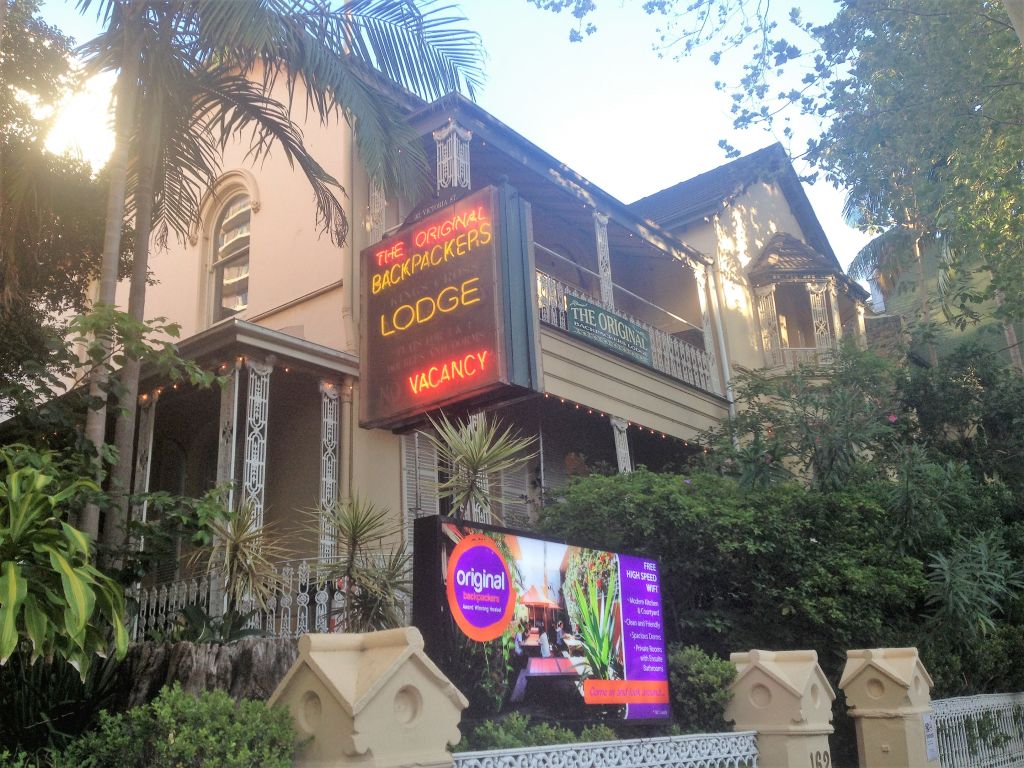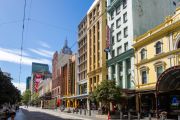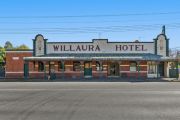
Kings Cross residents angry at growing number of rowdy backpackers in 'party hostels'
Large groups of backpackers are congregating on the street every night in one of Australia’s tourist hotspots, drinking, partying, shouting, swearing and blocking footpaths for locals and other visitors, residents claim.
And with one of the biggest of the 30-plus backpacker hostels in the Kings Cross and Potts Point area of Sydney now submitting a development application to extend its premises, locals are calling for a freeze on any more beds.
Bars, restaurants and even brothels in residential areas all have to abide by tight regulations and conditions, they say, but these hostels operate with few rules and a flagrant disregard of their responsibilities.
“Many were converted from old boarding houses and so the vast majority have no conditions attached to their operations,” says former Sydney councillor Jenny Green.
“It’s a big loophole in the legislation and, as a result, it’s been all about voluntary management plans.
“It’s left us in the position of the hostels not managing their customers at all. We have a lot of backpackers congregating to sit on the street and drink at night, with amplified music, when they’re no longer allowed to sit in the hostels’ courtyards and drink. This can go on until 4am or 5am in the morning, shouting and screaming and partying in significant numbers.”
The NSW Police’s riot squad have even in the past been known to attend the area’s backpacker hub, Victoria Street, after fighting broke out and a person was stabbed.
Now local residents regularly complain to police and ask them to quieten down the crowds.
But they’re now organising a more sustained fightback against the hostels expanding, circulating petitions and organising letter drops urging people to object to their DAs.
“I was a backpacker myself once, but these hostels have become mega-hostels and entertainment venues where people come to party,” says another local resident, company director Hugh McCullum. “When I first came to this apartment to live 21 years ago, for the first 15 or 16 years, the hostels were good neighbours.
“But now the backpackers stay longer, they drink and smoke and scream at night when their party moves out into the street after 10pm – even though it’s an alcohol-free zone – and they never receive fines. Some of the hostels buy them bin bags full of grog and hold cheap barbecues for them and their friends, and no one can keep them in check.”
Complaints to the hostels at night fall on deaf ears, Mr McCullum claims. The last time he called, a young female backpacker was on duty and asked him what he expected her to do when there was just one of her – and 75 of them.
The current DA before the City of Sydney involves two neighbouring backpacker hostels, The Original Backpackers Hostel and Zing next door.
They are applying for permission to make alterations and additions, including adding a new three-storey structure to the rear of one of the terraces to accommodate more rooms and a communal lounge and kitchen. In total, the application reads, 249 guests and 77 rooms are proposed, at a cost of $745,000.
The general manager of both hostels, Bruce Kennedy, said that while they’re asking for more space, they weren’t proposing more beds as the additional rooms would be larger and the communal lounge would give backpackers space to sit and drink indoors, rather than on the street outside.
“The new building to the rear will also mean more separation from the neighbours,” he said. “At the moment, there’s only a fence, but now there’d be a brick building. It would make it quieter for them as one of the problems is they have to leave our courtyard at 9.45pm and then they hang on the street, which isn’t ideal.
“We want to get them off the street. I think a difficulty is that Europeans use the streets, whereas in Australia, we don’t. We do have neighbours complaining about the noise but it often isn’t us; it’s coming from neighbouring buildings.”
One neighbour, writer-director Philippa Bateman, said locals welcomed young people and their diversity but some of the behaviour that was allowed to happen at the hostels made living in the area difficult. “It can be pretty hellish at times,” she says.
“These hostels are really party hostels and the way they’re regarded as boarding houses that have become almost private residences means a real lack of control. Complaints just bounce between the council and the police.”
A spokesperson from the City of Sydney said a DA had been received for a new three-storey structure to the rear of 158 Victoria Street to accommodate six new hostel rooms, a communal lounge and kitchen. “As part of the assessment process, the City has notified surrounding neighbours and property owners to seek their views on the proposal,” she said.
“The City cannot comment further on the DA as it is currently under assessment.”
Potts Point and Kings Cross Heritage & Residents Society president Andrew Woodhouse said he also objects to the footpath parties that leave debris and bottles on the pavement. “These hostels allow their patrons and their visitors to trash an already dense neighbourhood,” he said.
“These unruly hostels aren’t living in suburbia; they are living in dis-turbia. Poor management and a lack of regulation are making these hostels bad neighbours.”
Laws have recently been proposed in Victoria’s Mornington Peninsula to limit ‘party flats’ and impose a curfew on people partying outside. Meanwhile, a council in south-east Queensland recently introduced legislation against homes being turned into party venues with the service of alcohol and music at weekends without the restrictions that apply to pubs and hotels.












